#jasmila zbanic
Explore tagged Tumblr posts
Photo
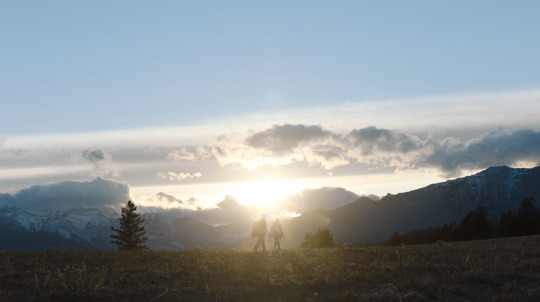

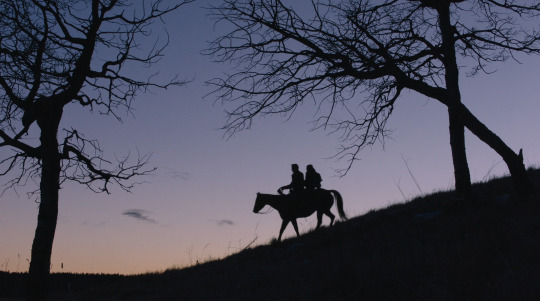
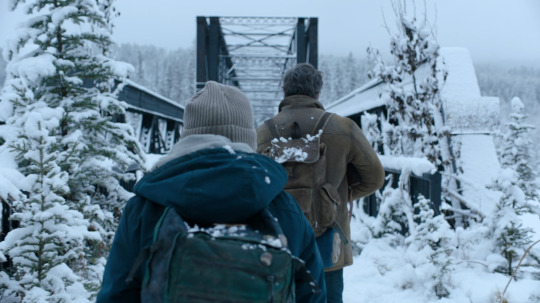



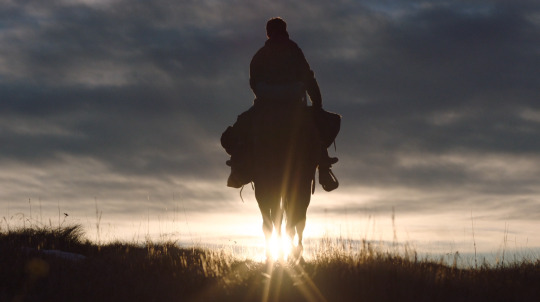
The Last of Us – "Kin" dir. Jasmila Žbanić
#the last of us#tlou#tvedit#jasmila zbanic#pedro pascal#bella ramsey#gabriel luna#rutina wesley#graham greene#cinematography#faceless
802 notes
·
View notes
Photo
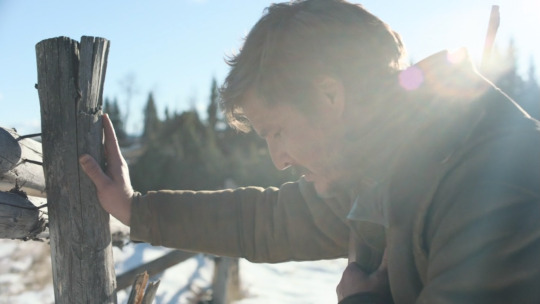
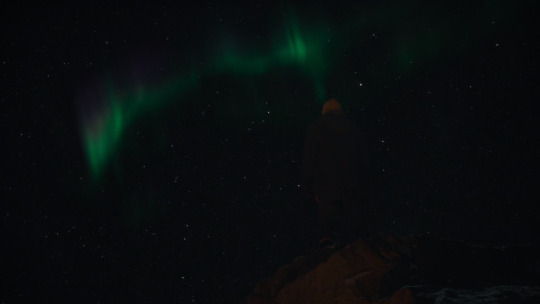

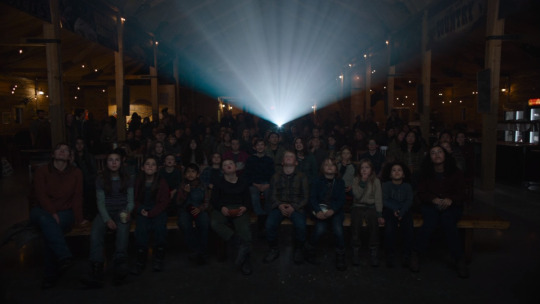


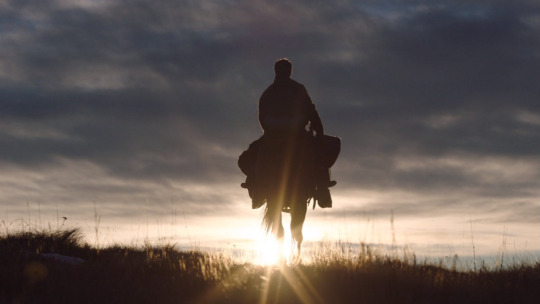
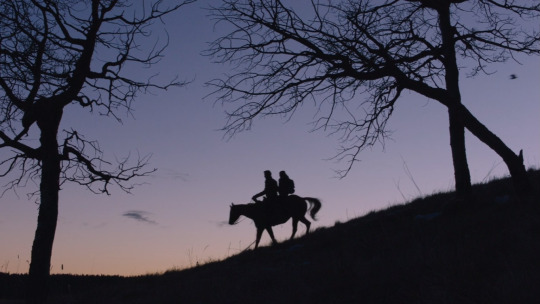

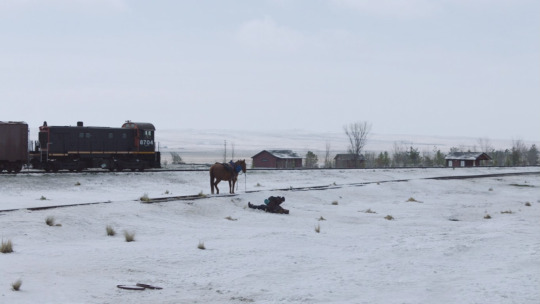
**Shots of the Episode**
The Last of Us (2023)
Season 1, Episode 6: “Kin” (2023) Director: Jasmila Zbanic Cinematographer: Christine A. Maier
#shots of the episode#the last of us#tlou#the last of us series#tlou kin#the last of us season 1#kin#last of us#tlou ep 6#hbo#tlou spoilers#jasmila zbanic#christine a. maier#craig mazin#neil druckmann#pedro pascal#bella ramsey#joel x ellie#ellie x joel#spores#ellie tlou#joel tlou#hbo max#cinematography#2023 tv#2023#2023 in tv#tv#television#2020s tv
131 notes
·
View notes
Text

The Last of Us HBO: Episode 6 - Kin
Dir. Jasmila Zbanic
Starring Pedro Pascal, Bella Ramsey, Gabriel Luna and Rutina Wesley
#Jasmila Zbanic#Pedro Pascal#Bella Ramsey#Gabriel Luna#Rutina Wesley#the last of us#the last of us HBO#the last of us hbo#the last of us episode 6#joel miller#ellie williams#cinematography#maria#tommy miller#maria miller#ellie x dina#tlou cinematography#film and tv
7 notes
·
View notes
Text

The Last Of Us
S1.E6, Kin
Director: JASMILA ZBANIC
Ali...

6 notes
·
View notes
Text



The Last of Us - Kin (S01E06)
The cinematography in this episode was stunning. One of my favorites of the season. In general, it was mostly balanced compositions. The production design kept things simple, with open and empty spaces. Together, they created a really peaceful atmosphere; yet another episode where contrast is created to have a bigger impact on the audience, once it gets to the last part of the episode, where, once again, the story turned sour.
First shot: Gorgeous silhouette, calm and full of hope. A very nice and relaxing color palette. Balanced composition thanks to the diagonal line, the amount of branches and the small amount of orange in the corner. My favorite frame of the episode.
Second shot: Beautiful balance and great example of how to create imaginary lines to guide the eyes of the audience. The first thing you notice is the fire, as it's bright and creates a huge contrast. Naturally, your eyes then move toward Joel, as he's right next to said light source. Then, without thinking, you notice he's staring at something, and your eyes immediatly follow the direction of his stare, noticing Ellie in the other corner, who's surrounded by darkness but with a light contour that separares her from the back.
Third shot: Here, the balance is created by the small amount of really bright white in contrast with over 2/3 of the frame being darker and muted. The color palette is stunning and every element compliments each other, even the smudged lines of dirt right next to the window frame, as well as the shiny piece of metal? glass? in the back, behind Joel.
#the last of us#tlou#kin#Pedro Pascal#Joel Miller#cinematography#color palette#Jasmila Zbanic#Christine A. Maier#silhouette#production design
3 notes
·
View notes
Text
The Last of Us (Season 1)

TV Shows/Dramas watched in 2023
The Last of Us (Season 1, 2023, USA)
Directors: Craig Mazin, Neil Druckmann, Peter Hoar, Jeremy Webb, Jasmila Žbanić, Liza Johnson & Ali Abbasi
Writers: Craig Mazin & Neil Druckmann
Mini-review:
I'm so happy this show lived up to all the hype. I've done my best to avoid spoilers, but everyone kept talking about it, so my expectations were high. On the surface, it might look very similar to many other survival/zombie/post-apocalyptic shows, but its emotional core is on another level. It was incredible to experience the development of Joel and Ellie's bond, culminating in that brilliant final episode. Yes, it was a bit too short, but I just loved how morally grey and ambiguous it was.
Of course, that wasn't the only storyline worth talking about. Episode 3 was an instant classic and left me almost dehydrated from so much crying. The episodes set in KC were also great, and episode 8 was really intense and unsettling, way more than other episodes more focused on the "zombies". Speaking of which, the creature designs were very disturbing and absolutely terrifying (I'm kinda glad there weren't that many of them LOL). Anyway, this first season was really good, with flawless acting, writing and directing. I have no idea about how the story could continue and I'm not planning on playing the videogames, so I'm really looking forward to the future second season.
#the last of us#craig mazin#neil druckmann#peter hoar#jeremy webb#jasmila zbanic#liza johnson#ali abbasi#pedro pascal#bella ramsey#nico parker#anna torv#gabriel luna#nick offerman#murray bartlett#lamar johnson#melanie lynskey#keivonn montreal woodard#keivonn woodard#rutina wesley#storm reid#scott shepherd#troy baker#zombies#video games#horror#hbo#ashley johnson#drama#2023 tv shows and dramas
1 note
·
View note
Text

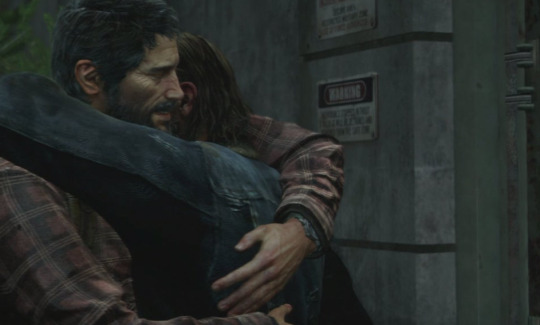


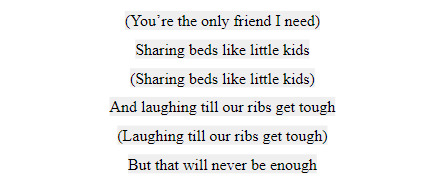

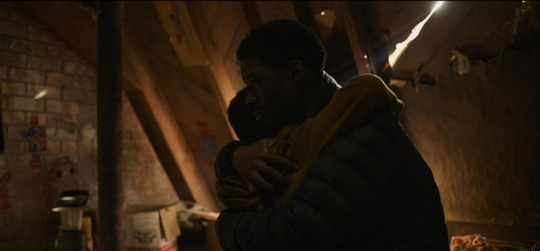






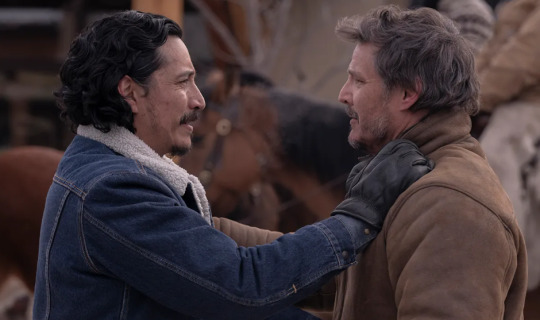


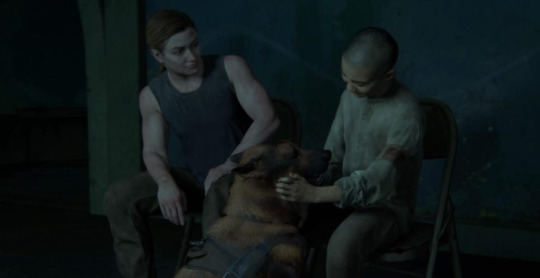
YOU CHANGED ME FOR THE BETTER // FAMILY IN THE LAST OF US
Joan Tierney The Elektra Complex // The Last of Us (2013) cr. Naughty Dog // Dean Lewis How Do I Say Goodbye // Sophocles Antigone // Lorde Ribs // unknown // The Last of Us (2023-), "Endure and Survive" dir. Jeremy Webb // Frank Ocean Wise Man // Eden Robinson Writing Prompts for the Broken-hearted // The Last of Us (2013) cr. Naughty Dog // Radical Face Always Gold // unknown // Jinhao Xie Stubborn Heart Beats (via @voicedwords) // The Last of Us (2023-), "Kin" dir. Jasmila Zbanic // Ann Brashares My Name Is Memory // The Mountain Goats Sax Rohmer #1 // The Last of Us Part II (2020) cr. Naughty Dog
#on love#on family#on found family#on self#poetry compilation#web weave#web weaving#poetry parallels#tlou#the last of us#joel miller#ellie williams#joan tierney#dean lewis#sophocles#lorde#frank ocean#eden robinson#radical face#jinhao xie#ann brashares#poetry#poem#spilled poetry#spilled thoughts#writing#spilled ink#dark academia poetry#dark academia#dark academia quote
1K notes
·
View notes
Text
0 notes
Text
0 notes
Text
"La voix d’Aïda" de Jasmila Zbanic à voir sur ARTE vendredi 28 juillet 2023 - Vidéo
http://dlvr.it/SslP3B
0 notes
Text
0 notes
Text
















2023 27 20.02.23 The last of us 106 Família
Direção: Jasmila Zbanic
0 notes
Photo










Jasmila Žbanić - Quo Vadis, Aida? (2020)
#film#jasmila žbanić#jasmila zbanic#quo vadis aida#where are you going aida#jasna djuricic#bosnia#war in bosnia#srebrenica#2020
183 notes
·
View notes
Photo



Quo Vadis, Aida? (2020) Jasmila Zbanic.
13 notes
·
View notes
Text
Quo Vadis, Aida?
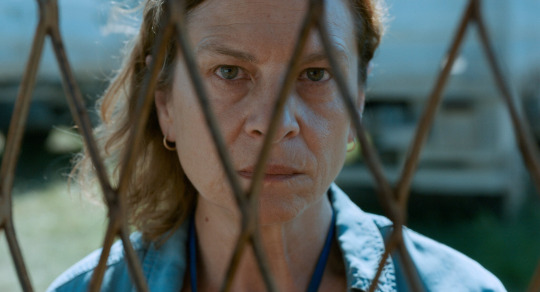
Dir. Jasmila Zbanic
War movies, almost by definition, tend towards either the macro or the micro: sweeping epics, or intimate confessions, but movies about war’s reverberations manage to be a bit of both. Jasmila Zbanic’s fact-based drama, about a UN translator, desperately trying to keep her husband and two sons from being taken by enemy troops during the Bosnian War, tells its harrowing story from the perspective of its protagonist, but always within the context of the thousands of other victims of Serbian strongman Slobodan Milošević.
The film also features a powerhouse performance from Jasna Djuricic as Aida, a Bosnian teacher, working as a translator for the combined UN forces under the auspices of Colonel Karremans (Johan Heldenbergh). When we first see them, the Colonel is formally meeting with the nervous mayor (Ermin Bravo) of Srebrenica, a small Bosnian city about to get swarmed over by Serbian troops. The Colonel assures him that the UN has issued an “ultimatum” to Serbian leaders about progressing any farther, or having to face a series of air strikes, wiping out their troops. The mayor, an anxious man, lets his feelings be known about the imminent danger facing his constituents, and demands some kind of promise from the Colonel. In response, the heavily mustachioed Karremans shrugs (“I’m just the piano player,” he says, very unreassuringly). The Mayor’s concerns prove entirely prophetic: The Serbs continue unabated, pouring into the outskirts of the city, and heavily bombing the place, while the terrified citizens head towards the only safe harbor they can: the UN-held encampment on the other edge of town.
Amongst those fleeing to the relative safety of the UN compound are Aida’s husband, Nihad (Izudin Bajrovic), and her two sons, college-aged Hamdija (Boris Ler), and high schooler Sejo (Dino Bajrovic). With many thousands left outside the compound gate, Aida manages to smuggle in her family, offering them at least a chance for safety. In this, she’s far luckier than most — throughout the film Srebrenicans, many of whom know her by name, implore her to help them in similar fashion — but it’s all she can do to keep her own family together.
Meanwhile, Srebrenica is taken over by the notorious Serbian General Mladic (here played by Boris Isakovic), an image-conscious sort of leader — he has a cameraman on him at all times, as a sort of personal documentor of his exploits — who quickly dispatches a bunch of troops to the UN site, where thousands of unprotected Bosnians wait for some sort of aid. Separating men from women and children, Mladic orders the latter whisked off to a faraway town in Bosnia, while systematically executing the men some 200 meters from the compound. Aida, in terror over her family, tries everything she can to keep them protected inside the UN facility, but when Colonel Karremans allows armed Serbians into the place (in order to “make certain” it’s not harboring any soldiers), things predictably fall into chaos.
If the film makes one point emphatically clear, it’s the toothless manner in which the UN (and, to be fair, much of the rest of the world) reacted to Serbian hostility, playing along and avoiding outright conflict — the promised airstrikes never happen, the Colonel is told because the UN “can’t afford to anger the Serbs” — and, in so doing, allowing Milošević’s troops to massacre and rape the Bosnians almost at will. Indeed, the UN’s utter uselessness is never better exemplified then when Mladic’s seasoned soldiers first arrive at the compound, and are met at the gate by a team of young, callow UN soldiers (mainly Dutchbats, without anywhere near the amount of firepower necessary to repel the Serbs), in sky-blue helmets, who, in their tank tops and khaki shorts, are no possible match against the grizzled forces before them. It’s like watching a group of camp counselors having to square off against the Huns.
Having exhausted all other methods of keeping her family from being expelled from the compound, and forced onto the waiting Serbian trucks, Aida literally gets down on her knees and begs a UN official to preserve them, but she is firmly denied (“We stick to the rules here,” he says, a statement so patently nonsensical, his mustache should catch fire). She watches helplessly as her family is pulled away from her and hustled onto a truck outside the compound.
It is that, coupled with growing sense of everyone else’s excruciating pantomime — for the benefit of either their legacy in history, or to protect their own conscience — that makes Zbanic’s film so gallingly effective. The General will claim no harm will come to civilians, when he knows full well he intends on massacring them; the Colonel will stand by his edict of following the rules, even as his world crashes all around him; and, the UN will make threats of force that they have no intention of carrying out. All of them denying the reality that is staring everyone in the face. In Zbanic’s film, it may be this sort of PR game for these world leaders, but not so for the ordinary citizens in these conflicts, who have to live with the grief and misery of these decisions for the rest of their lives.
#sweet smell of success#ssos#piers marchant#film#movies#jasmila zbanic#bosnian war#UN#Serbia#Slobodan Milošević#Jasna Djuricic#boris ler#war#politics#eastern europe
12 notes
·
View notes
Photo

79. Quo Vadis, Aida? (Jasmila Žbanić, 2021)
A remarkably clear-eyed, emotionally pulverizing rendering of the Srebrenica massacre that never feels exploitative, simultaneously addressing both the multifaceted political failures that allowed the atrocity to occur and their devastating human toll with extreme care.
Rating: 9.0/10
12 notes
·
View notes